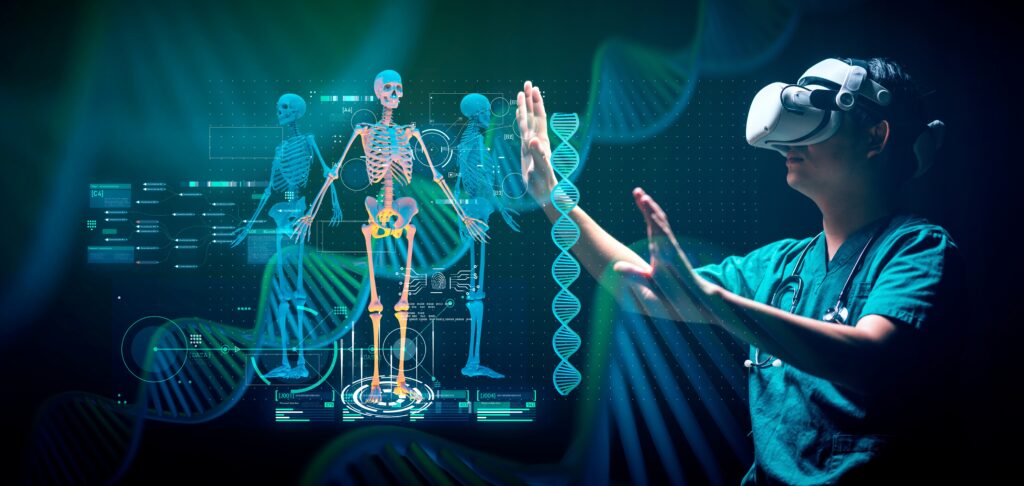
AI Revolutionizing Healthcare: Breakthroughs in Disease Diagnosis and Personalized TreatmentAI Revolutionizing Healthcare: Breakthroughs in Disease Diagnosis and Personalized Treatment Artificial intelligence (AI) is rapidly transforming the healthcare landscape, unlocking unprecedented advancements in disease diagnosis and personalized treatment. Here are some key breakthroughs that are revolutionizing healthcare: Accurate Disease Diagnosis: * Imaging Analysis: AI algorithms can analyze medical images, such as X-rays, CT scans, and MRIs, with exceptional precision. This enables faster and more accurate diagnosis of diseases, including cancer, heart conditions, and neurological disorders. * Natural Language Processing (NLP): AI models can process and interpret medical text, such as patient records and research articles. This helps healthcare professionals identify patterns, predict diagnoses, and make informed decisions. Personalized Treatment Plans: * Precision Medicine: AI can analyze a patient’s genetic profile, medical history, and lifestyle factors to develop personalized treatment plans. This approach targets therapies to the specific needs of each patient, maximizing effectiveness and minimizing side effects. * Drug Discovery and Development: AI accelerates the discovery and development of new drugs by predicting molecular interactions and identifying potential candidates. This streamlines the process and enhances the likelihood of success. Remote Patient Monitoring: * Wearable Devices: AI algorithms analyze data from wearable devices to monitor patients’ vital signs, activity levels, and sleep patterns. This allows healthcare professionals to remotely monitor patients’ health, detect changes, and intervene when necessary. * Virtual Check-ups: AI-powered virtual consultations enable patients to connect with healthcare providers from the comfort of their homes. This improves access to care, particularly in rural or underserved areas. Improved Patient Outcomes: * Early Detection: AI algorithms can identify early signs of diseases, enabling timely intervention and improving patient outcomes. * Reduced Hospitalizations: Personalized treatment plans and remote patient monitoring help prevent complications and reduce the need for hospitalizations. * Improved Quality of Life: AI enhances patients’ quality of life by providing accurate diagnoses, personalized treatments, and remote care, reducing stress and uncertainty. Ethical Considerations: While AI holds immense potential, ethical considerations must be addressed: * Data Privacy: AI algorithms rely on large amounts of patient data. Ensuring data privacy and security is crucial. * Algorithm Bias: AI models can inherit biases from the data they are trained on. Address this bias to ensure fair and equitable healthcare. * Transparency and Explainability: Healthcare professionals and patients need to understand the rationale behind AI-driven decisions. Transparency and explainability are essential for trust and acceptance. Conclusion: AI is revolutionizing healthcare by enabling breakthroughs in disease diagnosis and personalized treatment. Accurate imaging analysis, NLP, precision medicine, drug discovery, and remote patient monitoring are just a few ways that AI is improving patient outcomes and transforming the way healthcare is delivered. As AI continues to advance, healthcare providers and researchers must navigate ethical considerations to ensure fair and equitable access to these technological advancements.
Posted inNews